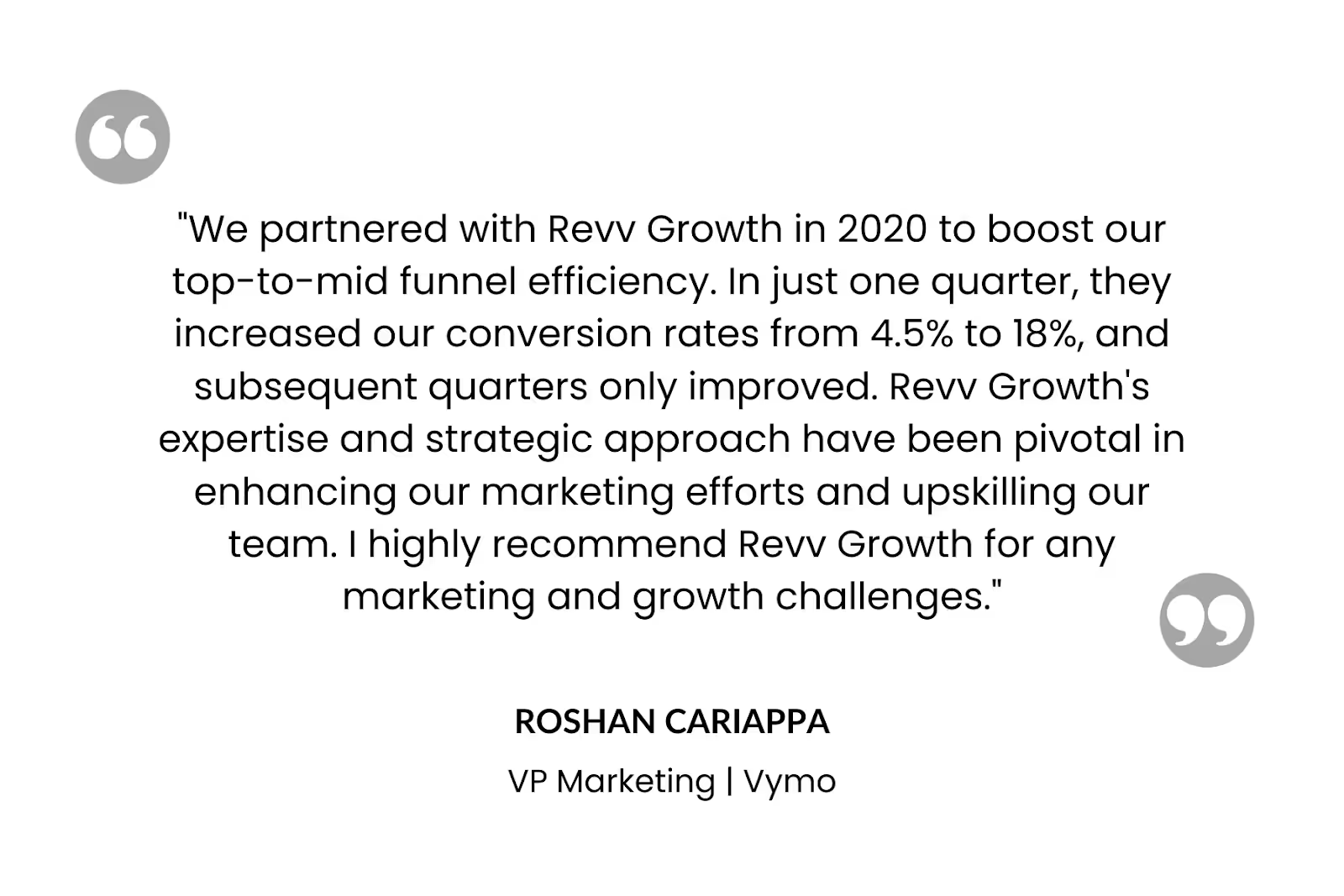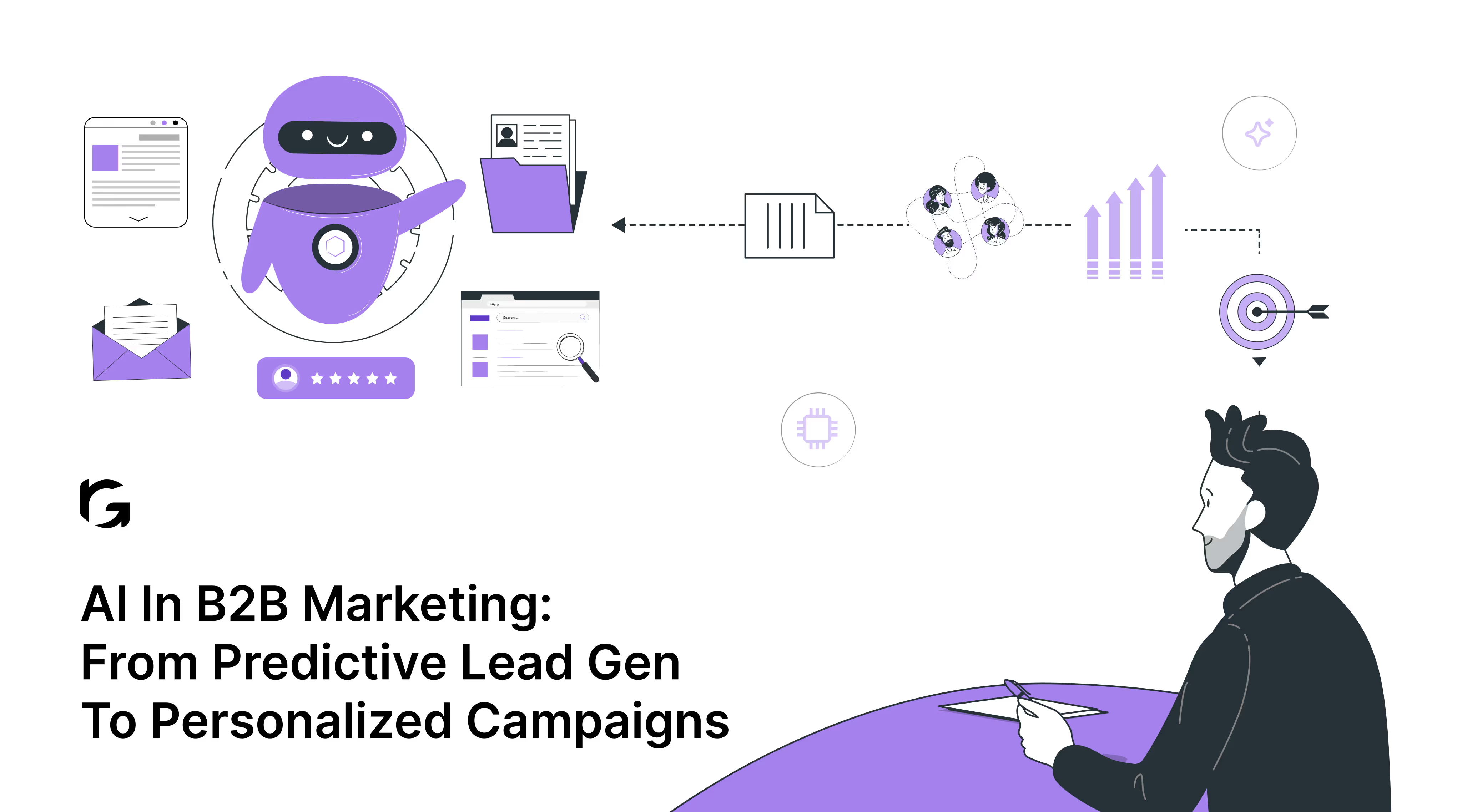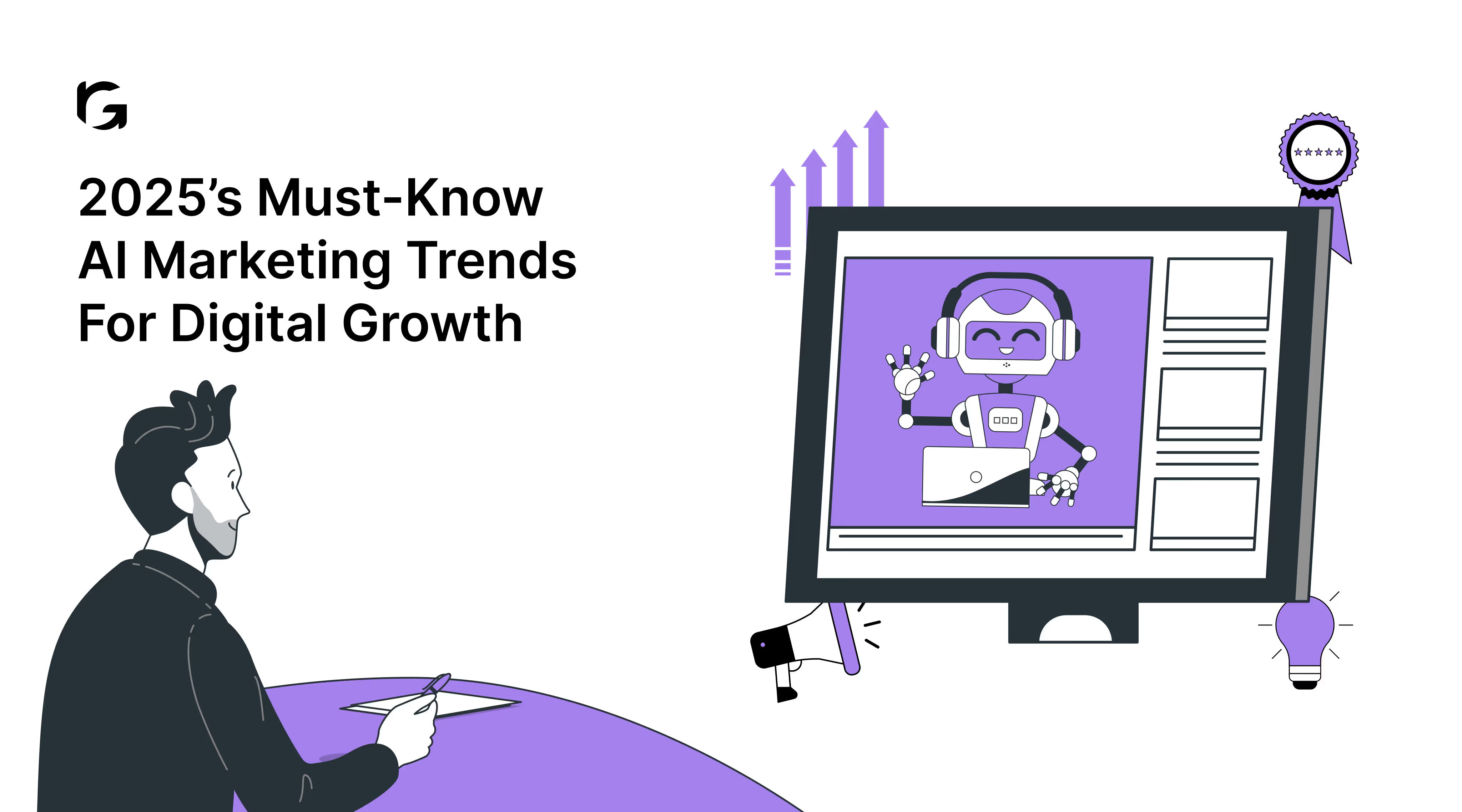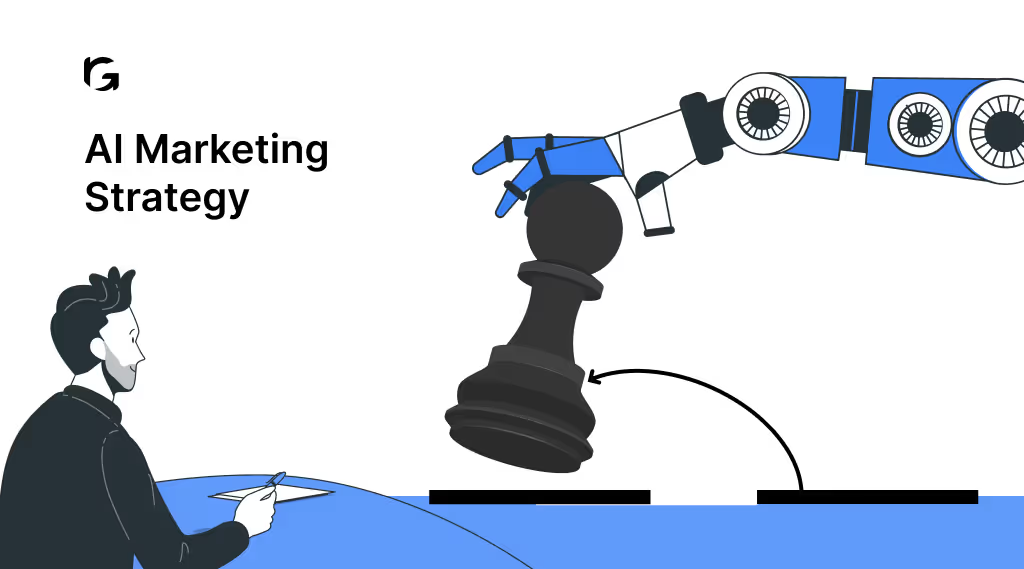Introduction
Many B2B teams today are investing in content, paid campaigns, and outbound outreach, but still struggling to grow their pipeline consistently. In most cases, it’s not a lack of effort. It’s a lack of intelligence built into the system.
AI is starting to change that.
According to McKinsey’s 2024 B2B Pulse Survey, just 19% of companies have fully integrated AI into sales and marketing. But those that have are already seeing faster decision cycles, more efficient targeting, and better ROI
And we’re not just talking about experiments. JLL, a global commercial real estate firm, developed a proprietary AI model called JLL GPT to streamline its operations. This tool reduced the time to draft a partnership memorandum from 4–6 weeks to under five hours, significantly enhancing efficiency across their marketing and sales teams.
That’s the opportunity in front of B2B leaders today. In this guide, we’ll break down where AI fits in a modern B2B marketing strategy, how leading companies are using it, and how you can start building an AI-powered engine that scales with your business.
What is AI in B2B Marketing?
AI B2B marketing uses data-driven tools to automate campaigns, personalize content, and optimize customer engagement. It helps businesses segment and target leads with precision. AI predicts customer behavior and provides real-time insights to inform strategy.
AI platforms enhance B2B campaigns by integrating with CRM and content management systems. They scale outreach and nurture leads across channels. Predictive analytics in AI improves marketing ROI and reduces costs. AI is essential for B2B marketers seeking efficiency, personalization, and competitive advantage in 2025.
Unlike traditional marketing automation, which follows fixed logic, AI continuously learns from your data to improve targeting, personalization, and timing. This makes it especially valuable in B2B environments, where sales cycles are longer, decision-makers are multiple, and context matters more.
Key AI Technologies Used in B2B Marketing
For every two tech leaders you meet, one of them has already made AI a core part of how their business runs. That’s nearly 49% of technology executives, according to PwC’s 2024 Pulse Survey.
But what exactly powers AI’s impact in B2B marketing? Let’s break down the three core technologies behind it:
1. Supervised Machine Learning
This is the engine behind AI’s predictive power. It learns from historical data, like CRM activity, website behavior, or past campaign performance, to identify patterns and make informed predictions.
Use case: Scoring leads based on how similar they are to previous high-converting accounts, so your sales team focuses on the right opportunities.
2. Natural Language Processing (NLP)
NLP enables machines to understand, interpret, and generate human language. It’s what powers intelligent chatbots, email subject line testing, voice search optimization, and even tone analysis in outbound messages.
Use case: Creating smart chat flows or analyzing sentiment from email replies to tailor follow-ups.
3. Generative AI
Trained on large datasets, generative AI can create entirely new content, copy, images, and even landing pages while maintaining tone, relevance, and structure.
Use case: Generating personalized email copy, dynamic ad creatives, or industry-specific landing page variations at scale.
These technologies work together to deliver faster insights, sharper segmentation, and campaigns that continuously improve with every data point collected.
Why AI is Essential for B2B Marketers Today
In 2025, with longer sales cycles, larger buying committees, and tighter budgets, teams can’t afford to rely on outdated playbooks. AI is becoming essential not because it's trendy, but because it solves the biggest challenges in modern B2B marketing.
Here’s why it matters now more than ever:
1. It powers real-time personalization at scale
Today’s B2B buyers expect tailored content based on their role, industry, company size, and where they are in the buying journey. But manually creating personalized experiences across dozens or hundreds of accounts is time-consuming and often unscalable for lean teams.
How AI personalizes in real time:
- Tracks content viewed, pages visited, time spent, and actions taken
- Adjusts emails, website copy, and ads based on buyer intent
- Boosts engagement, without extra manual effort
This level of real-time personalization helps improve engagement without increasing workload.
Marketers now use AI to process large volumes of customer feedback, pulling out key pain points and recurring benefits. This not only helps shape more relevant messaging but also improves ad performance, product decisions, and overall customer satisfaction.
2. It helps you prioritize the right leads
Traditional lead scoring models often rely on static criteria like job title or company size. But they miss the nuances of actual buying behavior. That’s where AI-powered lead scoring changes the game.
These models learn from past CRM and engagement data to predict which leads are most likely to convert. They prioritize based on real-time activity, like returning to the pricing page or downloading a whitepaper.
The result? Sales teams get a dynamic, prioritized list of high-intent leads instead of chasing cold ones. McKinsey reports a 10–20% increase in sales ROI for companies that have adopted AI in this area.
AI-driven analytics offer deep insights into customer behavior, enabling more precise segmentation and targeting. By integrating CRM systems and journey analytics, you can personalize campaigns at scale while automating repetitive tasks.
3. It simplifies complex decisions using data
B2B marketing generates a mountain of data: ad clicks, email opens, site sessions, CRM records, event attendance, the list goes on. But turning all that data into actionable insight is where many teams hit a wall. AI helps detect patterns, surfacing trends, and recommending next steps in real time.
For example, if your webinar attendance is high but demo requests are low, AI can flag that as a signal to optimize your post-event messaging. Or if a specific segment is reacting well to a content theme, AI tools can automatically suggest expanding that into a campaign.
SurveyMonkey's research indicates that 88% of marketers use AI to uncover insights more quickly, and 90% utilize it for faster decision-making, streamlining complex marketing processes.

Instead of reacting after the fact, you can proactively shape strategies based on what your buyers are doing right now.
4. It improves marketing efficiency and lowers costs
In B2B marketing, every hour and dollar counts. AI helps teams maximize impact by automating the most repetitive, time-consuming parts of the job, whether it’s A/B testing subject lines, allocating ad budget in real time, or optimizing landing pages based on engagement rates.
The result isn’t just cost savings, it’s a measurable revenue advantage. BCG research found that companies actively leveraging AI saw 1.5× faster revenue growth and 1.4× higher returns on invested capital over three years compared to competitors.
That’s not just efficiency, that’s compounding growth.
Now that you understand why AI is critical, let’s explore how you can apply it to your everyday work. The next section walks through the most valuable AI in B2B marketing use cases today.
Top Use Cases of AI in B2B Marketing
B2B marketers today have to do more with less. AI helps by streamlining tasks, identifying what matters, and personalizing every touchpoint.
Here’s where AI can make your marketing smarter and more impactful.
1. AI-Powered Lead Scoring and Prioritization
AI enhances lead scoring by analyzing both historical and real-time data to predict which leads are most likely to convert. Instead of using basic rules like job title or company size, AI models look at behavioral signals, engagement patterns, CRM activity, and more to assign lead scores that reflect actual buying intent.
An investment advisory firm, Carson Group, enhanced its sales and marketing efforts by implementing AI/ML-powered lead scoring. This approach allowed them to acquire new customers more accurately and efficiently by analyzing consumer behavior data to construct a blueprint of what a qualified lead looks like for their business.
AI-driven lead scoring isn’t just about better predictions. It’s about alignment, between sales and marketing, between outreach and timing, between insight and action. If your pipeline feels cluttered or conversion feels unpredictable, this is the use case to test first.
2. Intent-Based Targeting and Predictive Outreach
AI tracks digital behavior to uncover intent signals, such as repeated visits to pricing pages, content downloads, or searches for competitor products. These signals help identify accounts that are actively considering a solution like yours.
Once intent is detected, AI tools can recommend the best messaging, timing, and channel to reach these accounts while they’re still in the decision-making window. This allows for smarter, more proactive outreach.
Certilytics, a healthcare analytics company, implemented AI-driven predictive intent targeting to enhance their outreach strategies. By analyzing behavioral data, they identified high-intent prospects and timed their engagement efforts accordingly.
This approach led to improved program engagement, 2.6× more responsive, and the average modifiable savings per member jumped from $5,612 to $15,639 in one year. Hospital-based costs dropped from 56% to 38%.
AI gives you a clear signal so you can prioritize warm accounts and engage at the right moment.
3. Personalized B2B Campaigns and Dynamic Content
AI enables marketers to deliver personalized campaigns at scale. It analyzes user behavior and context to tailor email copy, ads, and website experiences in real time, not just based on segments, but individual profiles.
Instead of showing the same landing page to every visitor, AI-powered systems dynamically update content modules based on industry, funnel stage, or past behavior, making each interaction more relevant and impactful.
Take the example of IBM, which implemented Adobe's Firefly, an AI image generator, to create marketing materials. During a pilot test, Firefly generated 200 images with over 1,000 variations, resulting in 26 times higher engagement compared to IBM's benchmark for similar campaigns. This approach allowed for more personalized marketing and freed up employees for creative tasks.
4. AI for Account-Based Marketing (ABM)
Traditional ABM often relies on static ICP lists and generic campaigns. AI changes that by analyzing firmographics, technographics, and real-time engagement signals to prioritize high-fit accounts and trigger the right outreach at the right time.
It also helps customize outreach strategies by predicting which content formats or communication styles will resonate with each account, helping marketers build deeper relationships across the buying committee.
Vymo, a sales engagement platform for the BFSI sector, partnered with Revv Growth to grow its enterprise pipeline in India. From 50 target BFSI accounts, Revv Growth mapped 250 key decision-makers using firmographic and behavioral data.
Personalized LinkedIn and email outreach generated $21 million in marketing-sourced pipeline and delivered over 500 qualified leads, while driving stronger engagement across target accounts.

This kind of precision targeting isn’t manual anymore. AI helps you filter accounts based on firmographics, technographics, past engagement, and intent signals.
5. AI-Powered Chatbots and Conversational Marketing
AI-driven chatbots go far beyond basic Q&A. They can qualify leads, ask relevant discovery questions, schedule meetings, and guide users through the buying journey, all in real time and across time zones.
These bots use natural language processing (NLP) to understand intent, personalize conversations, and even hand off hot leads to human reps when the time is right. This ensures consistent engagement without delay or friction.
Take Klarna, a Swedish fintech company, which implemented an AI-powered chatbot developed in collaboration with OpenAI to manage customer service inquiries. This chatbot handled two-thirds of customer interactions, effectively performing the work equivalent to 700 full-time agents.
In its first month, it engaged in 2.3 million conversations, handling queries in under two minutes compared to the previous 11 minutes taken by human agents. Klarna anticipates a $40 million profit improvement this year due to this AI assistant.
Modern AI chatbots do more than just answer FAQs, they engage prospects, qualify leads, and provide personalized experiences, ensuring your sales team focuses on high-value interactions.
6. Automated Email Sequences and Nurture Journeys
AI can automate and optimize entire email workflows based on how users interact with previous messages. It determines when to send, what subject lines to use, and how to tailor the message based on behavior and funnel stage.
This creates a more personal and relevant experience, one that keeps your audience engaged and moves them closer to taking action.
HubSpot used AI to personalize email campaigns based on each user’s behavior, preferences, and website activity. By shifting from broad segments to individual-level insights, they boosted relevance and engagement.
This approach resulted in an 82% increase in email conversions, a 30% rise in open rates, and a 50% increase in click-through rates. The key was using AI to match content to what each user truly wanted, turning routine email campaigns into high-impact conversations.
7. AI-Driven Customer Segmentation and Micro-Targeting
Instead of static segmentation (e.g., industry or region), AI allows for dynamic segmentation that updates continuously based on behavior, intent signals, and lifecycle stage. This level of granularity supports micro-targeting, reaching smaller, highly specific audience groups with personalized messaging.
Act-On, in collaboration with Intel, developed a machine learning model to automate customer segmentation. By analyzing vast amounts of behavioral data, such as email opens and content preferences, the AI system identified distinct customer segments, enabling more targeted and effective marketing strategies.

The model cut processing time from hours to minutes and enabled marketers to adjust inputs like features, filters, and suppression rules directly inside Act-On’s Audience Insights UI.
This is where AI-powered segmentation becomes an operational growth advantage. Instead of relying on static ICP filters, marketers can continuously uncover micro-clusters that perform better, allowing smarter targeting and higher conversion efficiency at scale.
8. AI in B2B Content Marketing and SEO
AI tools help plan, optimize, and distribute content more efficiently. They can analyze competitor performance, identify content gaps, and suggest high-impact topics and keywords. Some tools also help score content based on quality and SEO relevance, streamlining the optimization process.
Atlan, a data collaboration platform, partnered with Revv Growth to scale organic traffic without relying on paid channels. We used AI to automate content ideation, generate SEO-rich outlines, and target featured snippet formats. Editors refined each piece to ensure accuracy and authority.
As a result, Atlan published over 130 SEO-optimized blogs in 2 months, secured multiple featured snippets, and saw a significant rise in organic traffic and blog click-through rates.

Ready to turn content from guesswork to a growth driver? Let’s use AI to plan, optimize, and boost your rankings. Book a growth call with Revv Growth today.
In the next section, we’ll show how AI powers every stage of the B2B sales funnel, from first touch to long-term loyalty, and how you can use these insights to improve your entire customer journey.
The B2B Sales Funnel: How AI Powers Each Stage
AI doesn’t just help you capture more leads, it also strengthens every stage of the B2B sales funnel, making your marketing more efficient and personalized from start to finish.
Here’s how AI supports each funnel stage and which tools can help you bring these benefits to life:
1. Awareness: Smarter Ad Targeting with Predictive Insights
The top of the funnel is all about visibility, getting your brand in front of the right people. But in B2B, not everyone is a qualified buyer, and wasted impressions can cost you.
How AI helps:
- Analyzes firmographic data, online behavior, and campaign performance
- Predicts which accounts are likely to engage
- Optimizes targeting to reach decision-makers, not just broad categories
- Reduces wasted impressions and boosts ROI
Metadata.io is a great tool that is built specifically for B2B marketers. It automates testing and audience targeting using AI predictions, so you’re not guessing where your money goes. Jason Widup, Metadata.io’s VP of Marketing, even shared his experiences in a Reddit AMA on how this approach cuts wasted spend and reaches the best-fit buyers.
Demandbase One is also a good option, users appreciate Demandbase's ability to streamline ABM strategies. One user noted, "DemandBase makes it really easy to pilot a true ABM strategy, without all the 'clunkiness' of other platforms."
What It Solves:
You stop spending money on the wrong clicks and increase awareness where it matters most, among high-fit accounts.
2. Interest: Engaging Prospects with AI Chatbots and Nurturing
Capturing attention is one thing, keeping it is another. Once a lead lands on your site or downloads content, they expect quick responses and relevant next steps.
How AI helps:
- Deploys AI chatbots to engage visitors instantly
- Qualifies leads through smart questioning
- Personalizes nurture journeys based on user actions
- Ensures fast response times and better lead handoff
Exceed.ai is known for streamlining lead qualification, helping teams engage with significantly more leads in less time.
Drift stands out for its intuitive interface, making conversational marketing easier and more accessible for users across teams.
What it solves:
You maintain momentum with leads who are interested, delivering the right message at the right time without overwhelming your team.
3. Decision: Prioritizing Ready-to-Buy Leads
This is the stage where you want sales and marketing alignment. But relying on basic lead scoring models often results in missed signals or wasted follow-up.
How AI helps:
- Scores leads using behavioral, CRM, and third-party data
- Flags intent signals in real time
- Surfaces best-fit opportunities to sales teams
- Reduces follow-up on low-quality leads
6sense is valued for its predictive analytics. A user on Gartner shared, "What I like most about 6sense Revenue AI is its ability to provide deep insights into buyer behaviour and intent."
MadKudu is another great option that offers insightful lead scoring. Lian Boggar on Product Hunt mentioned, "MadKudu + Zapier is an early-stage marketing team's dream: personalized automation for your best leads. Couldn't recommend this more for teams looking to focus on their best leads throughout the funnel."
What it solves:
Your sales team focuses only on the accounts that are showing real buying intent, not just those who filled out a form.
4. Retention: Reducing Churn with Predictive Signals and Proactive Offers
Retention is often where the B2B funnel leaks the most value. AI can help you spot churn risks before they happen and guide you toward winning those customers back.
How AI helps:
- Tracks product usage, support interactions, and feedback
- Detects churn risks before they escalate
- Recommends personalized re-engagement campaigns
- Helps customer success teams stay ahead of issues
Gainsight is praised for its proactive customer success tools, helping teams stay ahead with timely alerts when customer issues need attention.
Salesforce Einstein stands out for its user-friendly chatbot interface, making it easy to build and manage AI-driven conversations.
What it solves:
You move from reactive retention (after a customer complains) to proactive success management, retaining more customers and reducing revenue volatility.
You’ve now seen how AI strengthens every step of the funnel, from finding the right buyers to keeping them engaged long after the deal closes. But how do you put this into practice without overhauling your entire stack?
In the next section, we’ll walk through how to integrate AI into your workflow in a way that’s simple, strategic, and scalable.
Conclusion
75% of marketers surveyed say AI and automation help them spend less time on manual tasks, which means more time on the creative parts of their jobs that they enjoy most. And another 68% say AI has actually helped grow their careers.
AI in B2B marketing is no longer a future concept, it’s a present-day advantage. But the value of AI doesn’t come from the tool itself. It comes from how you use it to improve the way you understand, engage, and serve your buyers.
Throughout this guide, we’ve walked through real ways AI can support your strategy. From scoring leads more accurately to personalizing outreach and scaling content with ease, AI helps you make decisions based on data, not guesswork. It gives your team more time to focus on what really moves the needle: creativity, messaging, and building trust with the right accounts.
If you’ve been hesitant about adopting AI, that’s okay. You don’t need to automate everything or overhaul your entire system overnight. Starting small, by testing AI in one or two areas, can lead to clearer wins and stronger buy-in across your team.
At Revv Growth, we help B2B companies turn AI into something useful. Not hype, not complexity, just results. Whether you're launching a new campaign, optimizing your sales funnel, or rethinking how you do ABM, we’ll help you use AI where it counts.
Let’s turn your marketing strategy into a smarter, more scalable growth engine. Talk to our AI experts today.



.svg)

.avif)

.webp)